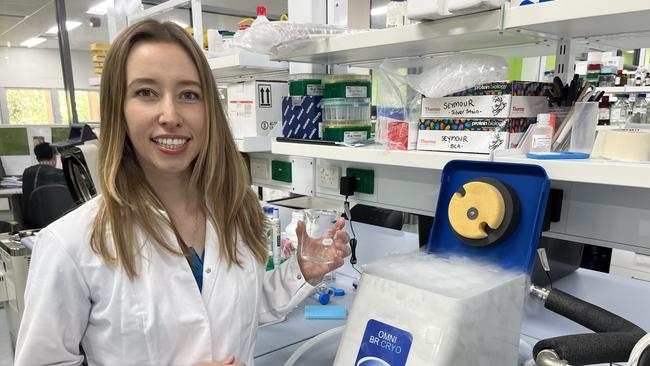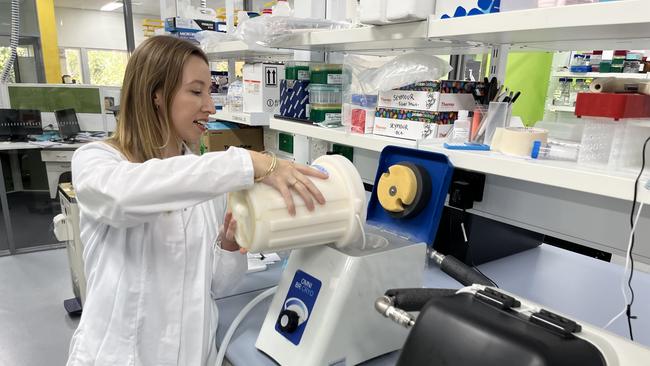JCU and hospital foundation team up in fight against marine stingers
JCU and the Far North Queensland Hospital Foundation have teamed up to collect the deadly venom of the irukandji and box jellyfish in the name of research.

Cairns
Don't miss out on the headlines from Cairns. Followed categories will be added to My News.
James Cook University and the Far North Queensland Hospital Foundation have teamed to collect the deadly venom of the irukandji and box jellyfish, capable of killing in less than two minutes, in the name of research.
The two organisations have collaborated to employ the latest in technology to extract venom from the deadly box and irukandji jellyfish.
The venom is used by researchers to understand and combat injuries caused by the marine stingers.
The $25,000 bead mill homogeniser funded by the Far North Queensland Hospital Foundation will allow James Cook University’s world-renowned jellyfish expert Professor Jamie Seymour and PhD candidate Emily O’Hara to extract venom in greater quantities than before.
“Far North Queensland is home to two of the most dangerous species of jellyfish in the world – the big box jellyfish possesses venom capable of killing an adult human in less than two minutes,” Ms O’Hara said.

“The Irukandji jellyfish inflicts a torturous condition on its victims which presents as severe muscle pains, vomiting and has previously caused fatalities through intercranial haemorrhages.
She said the team at JCU’s Tropical Australian Stinger Research Unit, is currently the only organisation in Australia that regularly collects and extracts big box jellyfish venom and the only scientists in the world extracting venom from Irukandji jellyfish, supplying both venoms for in-house and external researchers as well as for antivenene production.

“We supply the only company developing box jellyfish antivenene, and our team leader and senior researcher Professor Jamie Seymour has many clinical research collaborations with Cairns healthcare professionals, all stemming from the venom we collect,” Ms O’Hara said
“This includes developing novel sting treatments and most recently, using a compound of box jellyfish venom to treat arthritis.”
She said the equipment currently involved in the venom extraction process has limitations, inducing significant heat build-up within the venom which can affect the biological activity of the venom components.
“More technologically advanced equipment is now available which maintains the venom at a stable cold temperature throughout the extraction process,” she said.
“This will yield more biologically intact venom, increasing the medical accuracy of all associated research.”
Hospital Foundation chief executive Gina Hogan said Ms O’Hara’s grant formed part of $218,000 funded by the Foundation in 2023 which was the fundraiser group’s second annual research funding round.
“We have now contributed almost $2m to research in the region since 2007 and we’re keen to grow this aspect of our support,” Mrs Hogan said.
“Together with the hospital, we’re on a quest to achieve university status and you can’t have that without undertaking a lot of research.”
More Coverage
Originally published as JCU and hospital foundation team up in fight against marine stingers




